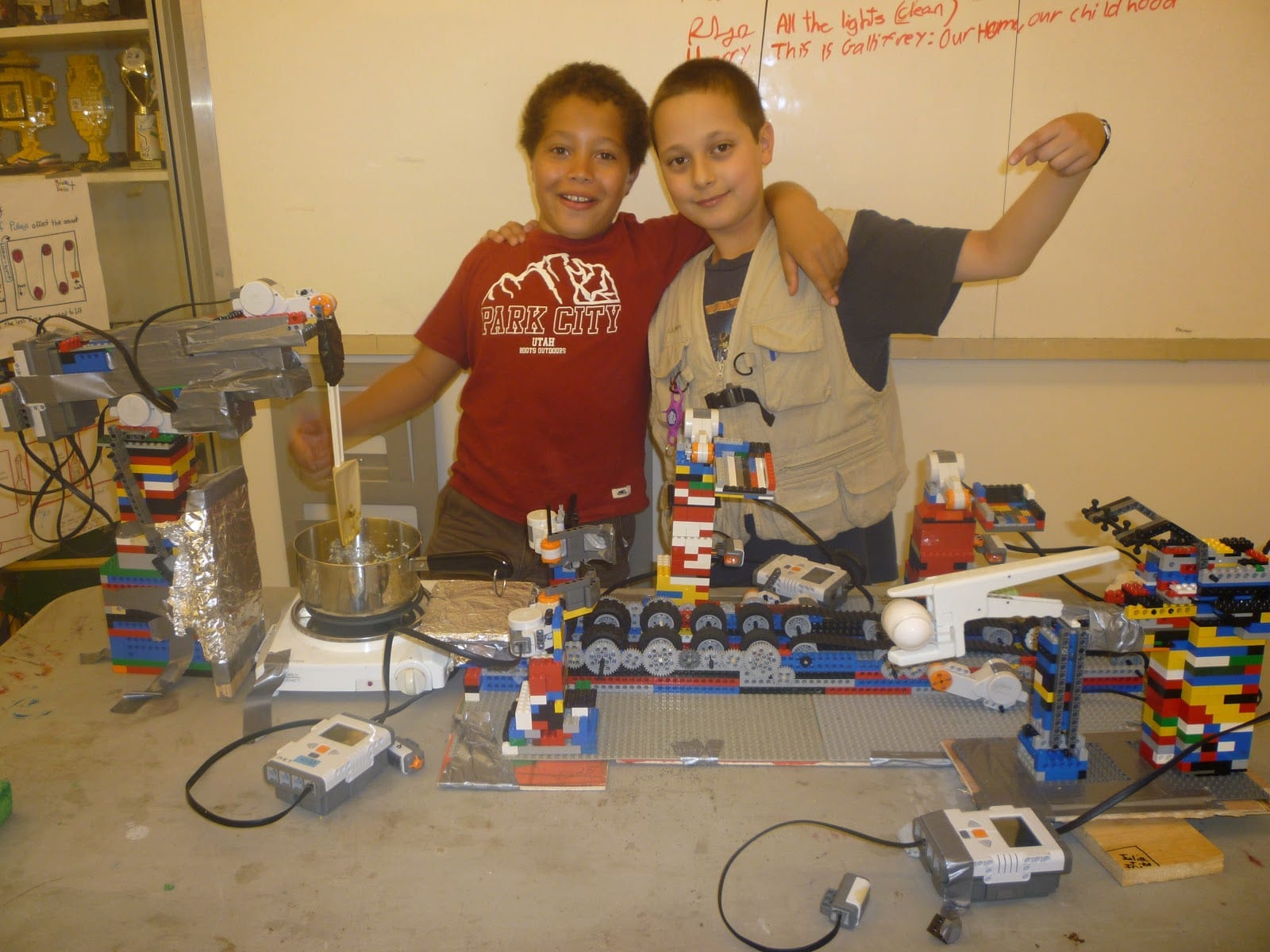FINDING MY FOCUS
What has been one of my peak experiences as a teacher? I am lucky that there are many instances in my career that make me feel engaged and motivated, that spark my desire to expand my knowledge base, but there is one that especially stands out in my mind.
I led a project many years ago where 5th grade students needed to create robotic innovations for a World’s Fair event. Two students wanted to make a cooking robot. I knew this would be no easy task. Not only would the engineering challenges of a Lego structure that could withstand the heat and be capable of doing the different tasks needed be quite great, but it would also involve large amounts of advanced programming that I was not familiar with. I was honest with the students about the challenges of the project they wanted to pursue, including the fact that I had not done something similar in the past. They nonetheless wanted to continue. Their enthusiasm was contagious. I eagerly embarked on this journey alongside them. I spent hours testing programming codes, learning and troubleshooting with the students. Their project pushed my understanding of the robotics technology to a new level.
Why has this experience remained so vivid in my mind after all these years? The success at the end was very satisfying, but that was not what made this experience special. That project challenged me to learn new things and figure out answers to questions I did not know. To the scientist in me, that was exciting! At the same time, as a teacher, it was great to be able to authentically model for students the science process and what to do when you do not know the answers to a problem. Throughout that project I was not only a teacher, but I was also an engineer, I was a scientist.
The reason I became a science teacher is because I loved figuring out how the world works and I wanted to help kids develop a similar curiosity for the world around them. Sometimes, though, personal scientific exploration can take a backseat to some of the more time-consuming aspects of being a teacher – assessments, lesson plans, classroom materials, report cards. My goal for this self-study is to remember that in order to spark scientific curiosity in my students I cannot forget to also spark it in myself. That I need to engage in my own scientific inquiries so I may reinvigorate the scientist in me and through that further inspire my students.
THE PLAN
The 8th grade curriculum provides the perfect platform for my self-study. I recently redesigned the 8th grade program to give students the opportunity to pursue independent science projects of their choice. One class a week in their 2nd and 3rd trimesters is dedicated to these projects. What if I worked on an independent project of my own alongside them?
I will create a dedicated time per week during one of my prep periods for my independent project that matches the amount of time 8th graders have to work on theirs. I will also follow the same process they do. The goal being to put myself in the position of the learner and analyze student’s experience.
- Is one class a week enough time to fully immerse myself in a meaningful way on a question?
- What resources would be useful to have as I go along the process?
- What challenges do I face and what strategies help me overcome them?
As I explore these questions and others, I hope to be able to look at ways that I can best support students’ own independent investigations.
In order to make my scientific process visible to my students I will experiment with different online tools like Re-cap to provide forums for my students and me to share our independent project journey with each other outside of class. I will also look for ways to create a space in the Science Lab where the work I am engaged in is clearly visible providing even more opportunities for not just my 8th graders, but all my students to be further involved in the process.



Sherezada, this is a really exciting line of inquiry. Experiencing the curriculum directly as a learner has the potential to have significant impacts on your students (especially if you are sharing your learning experiences with them). I think the more that we are able to step into this space as opposed to a more “teacherly” focus on the methodologies of pedagogy can help to make it easier for students to see our collective work together as co-learning. I’m sure that this experience will give you all kinds of insights about possibilities for curriculum design. At the same time and in the context of the self-study, this is a great opportunity to explore how these insights can also inform who you are as a teacher (i.e., how might stepping into this space identify new pathways in your own ongoing growth and transformation as a teacher/learner?) I look forward to reading more.